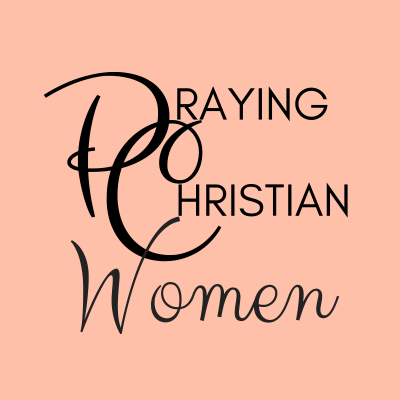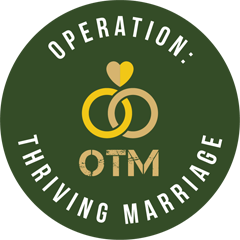
We’re starting this out and we’re talking about conflict because that’s one of the most common things in marriage. As an attorney one of Jen’s main jobs is resolving conflict. But conflict is not always resolved smoothly.
Jen had been in practice about seven years or so. And she was representing a gentleman on a divorce case. Jen, her client, opposing counsel, and the wife had just appeared before the judge. Jen had just told the judge on the record that her client had some very significant vision impairment. The other attorney wasn’t happy with what the judge was ruling. Her client started walking away and he accidentally bumped into this other attorney and legitimately did not see him because of his vision impairment. The attorney got mad and literally chased Jen’s client down the hallway and got eight inches away from the guy’s face.
Obviously conflict escalating to throwing hands is not where we want to go, especially when we talk about marriage. We’ve talked about this a lot. And obviously we’ve had conflicts. No one’s throwing hands, but conflicts happen in marriage. It’s a normal thing.
A lot of couples we’ve talked to in premarital counseling will tell us that they never have conflict. But lack of conflict is bad, because that means that someone is not expressing themself or putting out what your opinions are and what’s going on. Conflict is a very healthy thing because we’re unique individuals and we have different needs. We have different goals. We have different desires and we need to make sure that we’re not downplaying who we are to just blend into a relationship because that’s not healthy.
Conflict is important because of what marriage is. The purpose of marriage isn’t for people just to be happy. Happiness is a horrible goal for a marriage because happiness is fleeting. There are three purposes for marriage, (1) experiencing mature, fulfilling love, (2) growing to be more like Jesus, and (3) representing God to the people around us.
We’re both this journey, just like you: to be more like Jesus. We want to make sure that we’re fulfilling that purpose of marriage. You don’t, however, always get there in the prettiest kinds of ways. Conflict is never comfortable. Conflict isn’t pleasant. It’s not fun, but it’s important. If there’s not conflict in your marriage, then someone isn’t being honest. Someone is either just hiding their personality or over doing the submission aspect of marriage.
You see, conflict isn’t bad. Mishandled conflict is bad. That’s the problem. When we talk to couples who are dealing with conflict and they want to avoid it, it’s not the conflict they want to avoid. It’s the mishandled conflict. There’s a false idea that when you bring up an issue and you get to the other side of that with this person, it’s for sure going to be worse. And that’s not true. A lot of time you’re just that one awkward conversation or difficult conversation away from having that thriving marriage That conflict is really there to strengthen your relationship when it’s handled the right way. It’s that one choice you need to make and it’s so funny too because people want that but they’re afraid of what the outcome might be.
The problem is, we’ve all experienced mishandled conflict. What we mean is conflict isn’t resolved appropriately. Perhaps you tried to resolve the conflict but it became angry. It became, “I’m going to demand what I want or I’m going to say this isn’t important enough to me and I’m just gonna walk away.
Taking a break to unplug can be ok but it’s important to be clear and communicate that you want to come back and resolve the issue. When you just walk away with no resolution what you communicate to your spouse is, “You’re not important enough to me to deal with this.”
How then do we resolve conflict ? What are the keys to resolving conflict in a positive way?
Between the two of us, we we’ve really come up with a few principles:
Be Kind
Be Clear
Be Present
Kindness is one of the fruits of the spirit that Paul outlines in Galatians 5:22. Kindness allows you to speak to the heart of your spouse and show. Kindness shows that you love each other, that you care about each other, and you want what is best for each other.
Also kindness is just frankly a good idea when dealing with conflict. Proverbs 15:1 says, “A gentle response turns away anger, but a harsh word stirs up wrath” (NET). We’re are talking and Bryon is upset. If Bryon goes after Jen throwing the knife hand acting like a drill sergeant Jen will have no desire to work with him. Bryon just completely shut Jen down and put her in a situation to defend herself because he’s attacked her. The natural responsive when you’re attacked is defend yourself. When you’re kind, when you’re considerate, it just makes sense because the goal isn’t to get your way. The goal is to have a stronger marriage. The goal is to have a thriving marriage, to experiencing fulfilling love, to be more like Jesus. It’s all about living a holy life and ultimately we want to get out of it being more holy than we were before the conflict started.
You also need to be clear. You need communicate clearly what the conflict is, what your goals are, and what you want to have done. Bryon’s dad used to joke around saying, “Don’t drop hints. I’m not smart enough to pick them up.” We have to say what we’re upset about. We have to say why we’re upset. We have to say what outcome we want from the conversation.
For us that can get tricky in some of the simplest conversations because of our careers. There are times when Bryon has to say to Jen, “Stop, repeat everything you just said using different words because you just started speaking legalese.” Jen has to do the same thing. The military loves acronyms. Bryon can say a complete sentence without using a single real word.
In addition to kindness and clarity we need to be present. We need to be present physically, mentally, and emotionally. We can’t be checked out on our phones. We can’t be checked out watching a tv show. We can’t be busy with kids or cooking dinner. We really have to make sure that we’re present for our spouse as we’re having these more difficult or more awkward conversations and efforts to try to resolve the conflict.
It’s not enough to be physically, mentally, and emotionally present. We’ve also got to handle conflicts in the present tense. The conflict that you’re having is the only conflict you’re dealing with, that not what happened 6, 12, 18 months ago with this boyfriend or girlfriend you had in high school or whatever it is. It’s not helpful to try to work through more than the current conflict. You, also, don’t want to anticipate future conflicts. Don’t presume your spouse is going to do this or that other thing that you don’t like. The conflicts you have have to be in the present tense.
Being present also means allowing each other space to engage in the conversation. Dialogues resolve conflicts not monologues. Both of us are theatre people. We both know how to monologue. Everyone loves to see a good monologue in a Shakespearean play, or that guy from Antman explaining in precise detail everything that Scott Lang missed during the blip. (I’m sorry if you haven’t seen the MCU movies we can’t help you.) No one loves to listen to their spouse monologue about all the stuff they’ve screwed up.
Conflict is really important in marriage. We’re really good at lying to ourselves. We’re really good at thinking we’re the greatest. We’re really good at hiding. Yet, between the two of us, we’re really good at pointing out when we’re lying to ourselves. We need each other to do that because that’s how we develop in holiness. That’s where we grow to be more like Jesus by having someone tell us when we’re not doing what we’re supposed to be doing. But it is never comfortable. We always feel anxiety when we confront each other because there’s always the chance that we’re going to come at this the wrong way or It will be received in a way that’s not positive. And to be honest, that happens sometimes. It’s, however, always better in the long run when we get through it. In the end we’re closer to each other. We’re closer to God because we were able to grow through the conflict.
So as we just wrap up today, the big things we we want you to remember is the choice to have that conflict, is that choice you may need to make to have that thriving marriage. Don’t hide from conflict because that’s not going to give you the marriage you want. In that conflict be kind, be clear, and be present in the conversation and then you will be able to have a thriving marriage.
